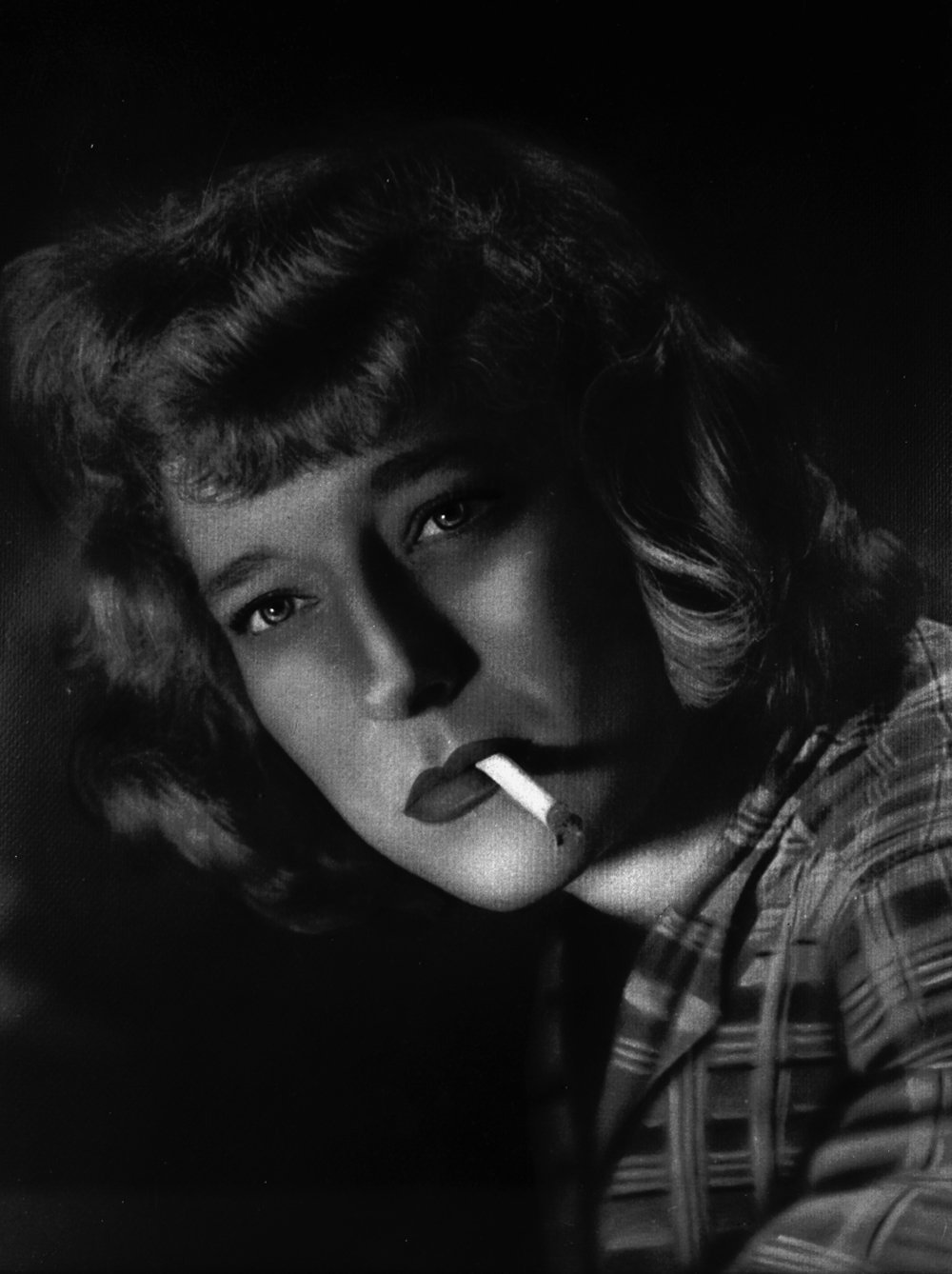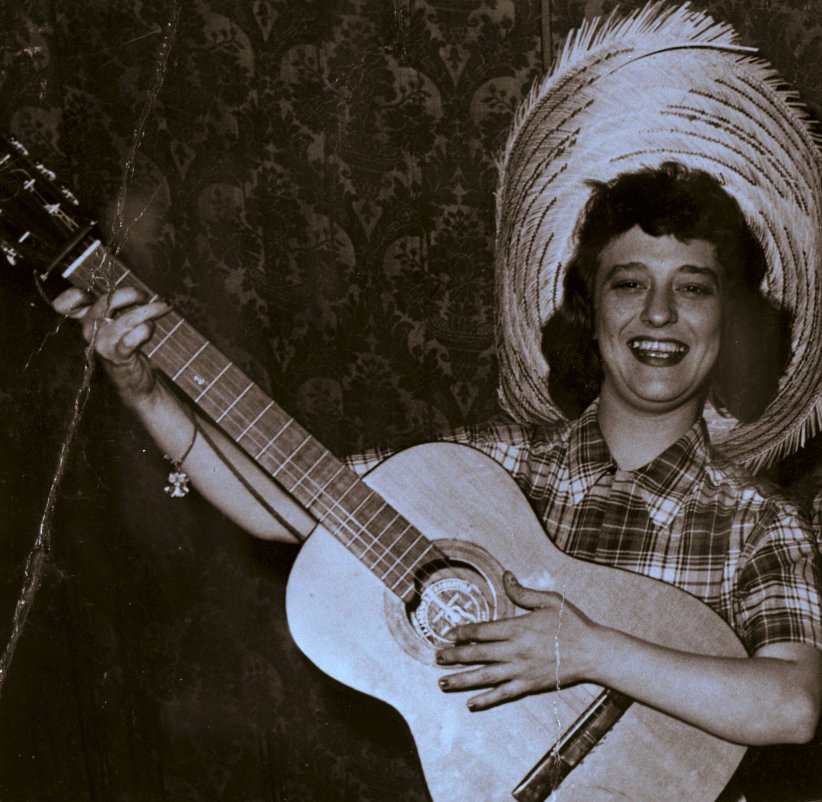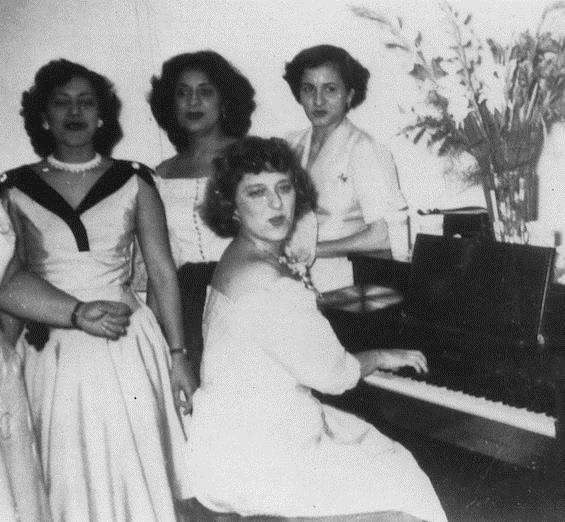SYLVIA REXACH
San Juan, Puerto Rico
January 22, 1921 - October 20, 1961
The following are the liner notes from Miramar’s album “Dedication to Sylvia Rexach”
Written by Yannis Ruel
Innovative and iconic. Fiercely independent. A woman ahead of her time. Puerto Rican composer and songwriter Sylvia Rexach led a short but intense life. Although she enjoyed her first successes as a bolero composer while still a teenager, she belongs to that category of musicians whose legacy is more appreciated after their death than during their lifetime.
Rexach was born in 1922 in the neighborhood of Santurce, the center of the economic and cultural life of San Juan. She was raised in a well-off family steeped in the creative arts. Nurtured by a father with a passion for opera and a mother who wrote poetry, Rexach’s natural talent as a composer, pianist and guitarist began to emerge at an early age.
While studying at Central High School in Santurce, Rexach made her debut as a vocalist on the radio program of pianist and composer Arturo Somohano. It was during this time that she wrote her first romantic songs, among which are “Dí, Corazón” and “Matiz de Amor.” Today considered classics of the Puerto Rican songbook, both songs were recorded for the first time in 1939 by singer José Luis Moneró and the orchestra of Rafael Muñoz who were residents at the Escambrón Beach Club, one of the most prestigious dance halls in Puerto Rico during this time.
“Dí, corazón / si esa llama aún perdura, / o si es locura o si es amor, / dí, corazón, si es mera ilusión…” The lyrics of her first song display a literary sensibility that is both rare in a girl of 17 and unusual in popular songs of the day. The bolero traditionally did not express romantic feelings in such an overtly sensual and intimate manner. Years later, the great Mexican bolero singer Pedro Vargas remarked, “You are more a poet than a songwriter!” upon hearing Rexach performing her own songs.
With the entry of the United States in World War II, Sylvia Rexach enlisted as an assistant in the Women's Army Corps. It was there that she fell in love with an American officer. She married him in 1943 and they had three children together. After a volatile relationship, the marriage ended. Well before the struggles of the women's liberation movement of the 1960s, Rexach embraced nonconformity and rejected societal roles. Living life as a woman emancipated of social standards, she spent her time composing and performing music and socializing with other artists at late-night parties, something previously enjoyed solely by men. She smoked, drank, stayed out late and lived an intensely bohemian lifestyle. In 1949, she founded and directed the first all-female band in Puerto Rico, “Las Damiselas,” later known as “El Combo de Sylvia Rexach.” For several years, the band performed for major clubs and radio stations in Puerto Rico and New York, playing an eclectic repertoire of current hits mixed with her own compositions, with songs such as “Nave Sin Rumbo,” “Luna del Condado,” “En Mis Sueños,” “Nuestra Luna” and “Nave del Olvido.” Among her most famous compositions, “Nave Sin Rumbo” employs a single, complex metaphor in which Rexach compares love to a vessel in a storm. It was a revolutionary image within the context of the bolero and the society of those days, challenging and expanding what was previously considered apt subject matter for classic romantic music. Employing a wider variety of imagery, sensual allusions and freedom of thought, Rexach’s poetry deftly redefined what bolero music could express.
A tireless artist, Rexach worked other jobs in music and entertainment in the 1940s and 50s. She composed and recorded commercial jingles (such as “Caprice, el mejor y el más fino calzado feminino, Caprice…), and traveled the island playing the piano and singing in different musical reviews, bars and hotels. She wrote scripts and performed in humorous one act plays for acclaimed popular radio and television programs. She also wrote a column for the Diario de Puerto Rico entitled “A Sotto Voce,” which documented the Puerto Rican cultural scene of those years. Rexach was also a founding member and secretary of the Puerto Rican Society of Authors, Composers and Publishers of Music. She wrote, “If a musical program paid the singer, pianist, full orchestra, bongo player, broadcaster, engineers, station owner, and eventually paid everyone except the one who made the song which employed all these people, it would not be fair.” Ultimately, she had to face another great injustice. Diagnosed with stomach cancer, Rexach spent the last decade of her life sick, knowing that death was imminent. But her declining health did not stop her from composing or living as a true bohemian until her death in 1961 at the Women's Hospital of Santurce, at only 39 years of age.
Four years after her death, the Institute of Puerto Rican Culture found an original recording from 1958, where Rexach sings fourteen of her songs accompanied by her friend, guitarist Tutti Umpierre. Entitled “Sylvia Rexach canta a Sylvia Rexach,” this obscure album is revered by her followers. Rexach’s wistful, melancholic voice perfectly reflects the feelings of sadness and tenderness so pervasive and expertly executed in her songs. Rexach’s boleros are unique in that the lyrics could stand alone as poems, but the sense of intimacy and sensuality is magnified by the music. She defined the feminine bolero, she was the Caribbean sister of García Lorca, Debussy and Agustin Lara.
Before the release of the album, only a handful of Rexach’s songs had been recorded by Puerto Rican singers, notably Jose Luis Moneró, Felix Castrillón, Tito Lara and Bobby Capó. Although her career was curtailed by her short life, her compositions continued to touch audiences throughout the 1960s and 70s. Songs like “Y Entonces” and “Alma Adentro” became new bolero classics, with countless interpretations. Some of the most prestigious romantic vocalists recorded entire albums of her songs in her memory: Lucho Gatica, Tito Rodríguez, Marco Antonio Muñiz, Gilberto Monroig, the Duo Irizarry de Córdova, Carmen Delia Dipiní and Tato Díaz, Martha Romero, Cheo Feliciano, Juan Luis Barry, and Rexach's own daughter Sharon Riley, among other artists. Although the bolero saw a distinct decline in popularity in the Latin music industry in the 1980s, Rexach's poetic and musical legacy was already officially recognized as part of Puerto Rico's cultural heritage. She has been honored and recognized by tribute concerts, written accounts of her life, murals, a biographical soap opera, and to this day, a bohemian gathering is never celebrated without an interpretation of one of her songs.
While never fully recognized during her lifetime, Sylvia Rexach has now become a cult figure both as a composer and a poet with a distinct talent for weaving the spiritual and the sensual together.
Sylvia Rexach Canta Sylvia Rexach
Recorded in 1958,
Released 1963/1964
℗ Grabaciones - Instituto de Cultura Puertorriqueña
LINKS & ARTICLES
>> Inédita Documental - Homage project to Sylvia Rexach by Lio Villahermosa (Dec 2020)
>> “Yo era su grabadora viviente”: Sharon Riley evoca a su madre, Sylvia Rexach, en su centenario” - El Nuevo Dia (Jan 2022)
>> ”Sylvia Rexach: Mujer de firmes principios y tiernos detalles” - Fundación Nacional para la Cultura Popular (Jan 2022)
>> “A 100 años del nacimiento de Sylvia Rexach” - El Nuevo Dia (Jan 2022)
>> SylviaRexach100 on Facebook
Celebración de los cien años del nacimiento de la compositora mas importante que ha dado Puerto Rico
>> Museo Sylvia Rexach on Facebook
Dedicated to the legacy of Sylvia Rexach and other female composers of Puerto Rico. The effort is being lead by Sylvia's daughter, Sharon Riley.
Other Publications
>> Sylvia on Wikipedia
>> Biography at La Fundación Nacional Para La Cultura Popular
>> Sylvia Rexach: Pasion Adentro/ Inner Passion - Biography by Virianai Rodríguez (2009) , Spanish Only - Out of print.
>> Sylvia Rexach : Siempre Viva at 80 Grados
Article by Virianai Rodríguez Santaliz (2011)






